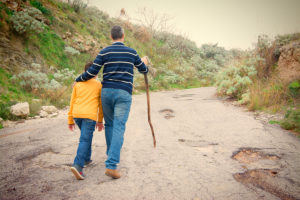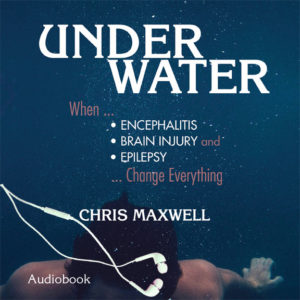Patients must not leave problems alone. To face them and let God grace them is a crucial choice. Avoiding disadvantages allows the disabled to elude mistakes and embarrassment, but it also keeps victims from moving forward.
Moving forward was what the church, my family, and my friends wanted me to do. Moving forward was what I needed to do. That is true for each of us. Do we really want to notice our strengths and build on them, while admitting our weaknesses and finding help?
Moving forward, instead of moving out, works.
I asked a friend how he moved forward, learning to walk again after a car accident. He said, “I worked and refused to stop until I walked. Then every morning, I would wake up and have to force myself to walk again.”
I asked a lady who had battled an eating disorder since her teen years how she moved forward. She said, “I focused on my positives and worked to improve them. I also confessed my weaknesses with total honesty and asked others to help me. If my friends had never confronted me to find help, I might not have changed.”
I asked an alcoholic how he faced his addiction and won the battle. He said, “I had to admit what I was really like. For too long, I claimed not to have any problems. It helped me when I finally got help. Three times a day, I voice my vows and pleas to God in prayer. Now, four years and seven months since my last drink, I keep moving forward one step at a time.”
I asked a lady if she still struggles to forgive her husband for his affair. She said, “Remember when you told me to walk through the house and read the Scriptures loudly? Things have been better since then. I know it was more than that. The counseling, the prayers, the forgiveness, and knowing he is now held accountable. But it is like something happened in the house, or maybe in my spirit, that gave me hope again. I keep hearing you say that I need to remember how God also has forgiven me. Looking back, I’m so glad I didn’t just run from the situation—or murder him—like I wanted to.”
I asked a friend in prison what she would say to those of us who are still living in freedom. She said, “Stop wasting time. Don’t make stupid decisions. Trust me, you don’t want to end up here. But I also worry about those people who keep doing things that will never get them in prison. Their habits keep them locked in a different kind of prison. I’ll tell you this, I am more free here—even though I hate it—than I was living that life of drugs.”
Before I ended my visit in the federal prison, I asked the young lady to pray for me. Her honesty took reverence to another level. She didn’t play a game. She pleaded to a listening Rescuer. Her prayer motivated me to stop wasting time.
Today’s blog post is from Chris’ book, Changing My Mind. You can find a copy here.









